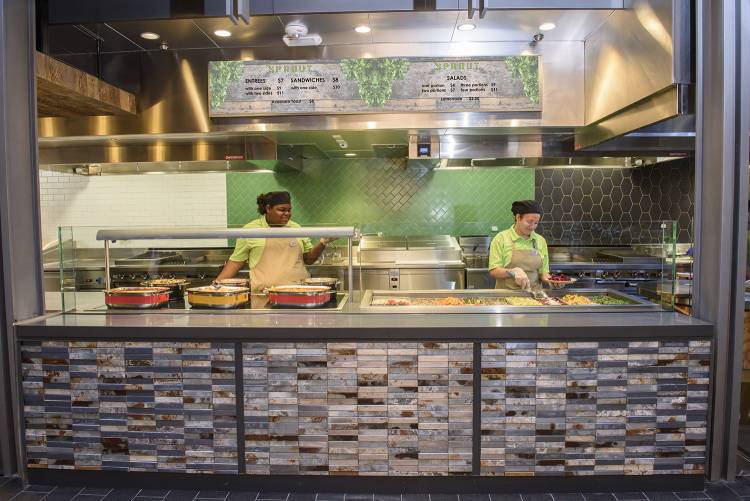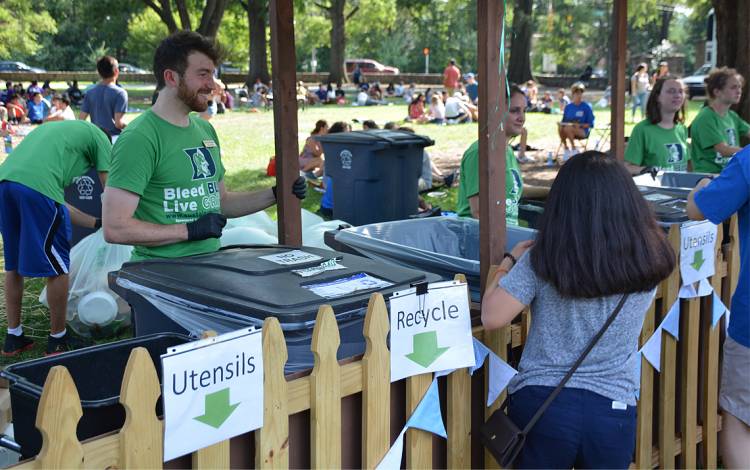A Plateful of Sustainability
Duke Dining reaps rewards for green practices

Tani Colbert-Sangree pointed a guest holding a plate of cantaloupe rinds toward a compost bin at a campus picnic for first-year students.
“Those rinds will be great nutrients for the soil,” Colbert-Sangree, program coordinator for Duke Carbon Offsets Initiative, told the guest. “Nothing here is being sent to the landfill.”
Colbert-Sangree was among a dozen volunteers who helped guests distribute food waste, utensils, plates, cups, and napkins in bins labeled “utensils,” “recycle” and “compost” during the “Zero-Waste Picnic.”
Duke Dining hosted the picnic in August to welcome about 3,000 first-year students and their families to campus. The event showed off Duke Dining’s commitment to sustainability, from watermelons grown at Duke Campus Farm to utensils made with cornstarch.
“We want to establish from the beginning of your time here that sustainability is embedded within Duke,” said Marcus Carson, assistant director of sustainability and quality assurance manager for Duke Dining.
Procuring food

For Carson, there’s nothing better than a snack of fresh watermelon from Duke Campus Farm.
“It tastes so juicy and fresh,” Carson said. “Produce really tastes better when love and care go into it.”
Duke Campus Farm on Friends School Road in Durham is one of 10 local suppliers for Duke Dining, whose procurement practices earned the department a gold award from the National Association of College and University Food Services in 2017.
In 2017-18, 28 percent of all of food purchases were local, meaning the food was grown within 250 miles, and 100 percent of coffee purchases were Fair Trade.
Putting plants first

Having lunch at Duke is always on Sue Wasiolek’s must-do list with visitors.
Wasiolek, who stopped eating meat in 1975, loves the cauliflower and pimento salad at Sprout, a vegan-friendly eatery in the Brodhead Center. She enjoys the Marketplace on East Campus, especially for its salad bar.
“I find no matter where I go around campus there are vegetarian and vegan options,” said Wasiolek, associate vice president and dean of students.
In the past decade, Duke Dining has added more “plant forward” options such as vegetable moussaka, lentil soup and an extensive salad bar at the Marketplace as sustainable alternatives to animal proteins.
Eliminating waste

Duke Dining banned disposable plastics from all 34 campus venues in July.
The decision requires all eateries to no longer carry single-use plastic carryout bags, plastic hot and cold beverage cups, plastic straws and plastic utensils. Dining venues will use paper bags and utensils, straws and drinkware made from Polylactic acid, a biodegradable plant-based substance.
Duke Dining’s next project is reducing waste from single-use takeout containers. A pilot program is underway for reusable containers for students.
“We want everything we’re producing to be compostable, recyclable or reusable,” Carson said. “We’re making a step toward keeping our world cleaner.”